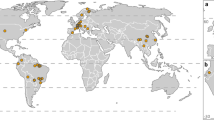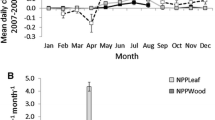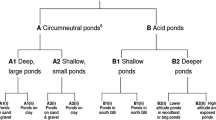ABSTRACT
The results of bottle and mesocosm experiments were compared with those obtained in whole-ecosystem experiments at the Experimental Lakes Area. Unless they can be cleverly designed to mimic major ecosystem processes and community compositions, smaller-scale experiments often give highly replicable, but spurious, answers. Problems with appropriate scaling are difficult to deduce without direct comparisons with whole-ecosystem experiments. Reasons are many, but include inappropriate spatial scales to include whole communities, in particular predators and nocturnally active animals; temporal scales that are too short to assess accurately the response of slow-responding organisms and biogeochemical processes; and elimination of key littoral–pelagic and catchment–lake interactions. Identical studies of limnological processes in lakes of a large range of sizes reveals that scaling correction is also necessary when extrapolating from small lakes to large ones. Accurate management decisions cannot be made with confidence unless ecosystem scales are studied.
Similar content being viewed by others
Author information
Authors and Affiliations
Additional information
Received 26 March 1998; accepted 14 May 1998.
Rights and permissions
About this article
Cite this article
Schindler, D. Whole-Ecosystem Experiments: Replication Versus Realism: The Need for Ecosystem-Scale Experiments. Ecosystems 1, 323–334 (1998). https://doi.org/10.1007/s100219900026
Issue Date:
DOI: https://doi.org/10.1007/s100219900026




